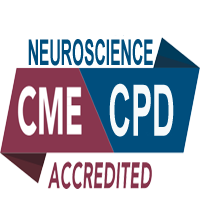Husham Bayazed
University of Zakho, Iraq
Title: Anti-β2-glycoprotein I autoantibody expression as a potential biomarker for strokes in patients with anti-phospholipid syndrome
Biography
Biography: Husham Bayazed
Abstract
Anti-phospholipid syndrome (APS) is an autoimmune disease. Cerebral ischemia associated with APS occurs at a younger age than typical atherothrombotic cerebrovascular disease, is often recurrent, and is associated with high positive IgG anti-phospholipid (GPL) unit levels. This study sought to determine the frequency rates of anti-cardiolipin (aCL) dependent on the presence of β2-GPI, anti-β2-glycoprotein I (aβ2-GPI) and anti-phosphatidyl serine (aPS) IgG autoantibodies among stroke patients, and thus demonstrate the importance of testing for aβ2-GPI autoantibodies. For this study, stroke patients and control subjects recruited from Mosul, Erbil and Dohuk provinces in Northern Iraq between March 2004 and March 2005 were evaluated. All cases were under 50 years-of-age and had no recognizable risk factors. Using ELISA to evaluate the presence of IgG isotype of aCL, aβ2-GPI and aPS autoantibodies in their blood, the results indicated that the frequency of aβ2-GPI was 14/50 (28%), aCL was 11/50 (22%), and aPS was 9/50 (18%) among stroke patients. In contrast, aCL was detected in 2/30 (6.7%) of control subjects; each of the other anti-phospholipid antibodies (APLA) was never observed. Of all the aβ2-GPI+ cases, the incidence of stroke patients having the combined profile of aβ2-GPI + aCL was 11/14 (78.6%) and of aβ2-GPI + aPS was 9/14 (64.3%). Only 2/14 (14.3%) of these aβ2-GPI+ patients, also expressed aCL in the absence of aPS. The frequency of patients expressing all three markers was only 9/14 (64.3%). In none of the APS/stroke patients were aCL or aPS expressed in the absence of the aβ2-GPI. Conversely, IgG aβ2-GPI as a sole marker was seen in 3/14 (21.4%) of these patients (i.e. in absence of either other marker). It can be concluded from these studies that the among the three major forms of APLA examined, the presence of IgG aβ2-GPI autoantibodies appeared to correlate best with stroke in patients who were concurrently suffering APS.

